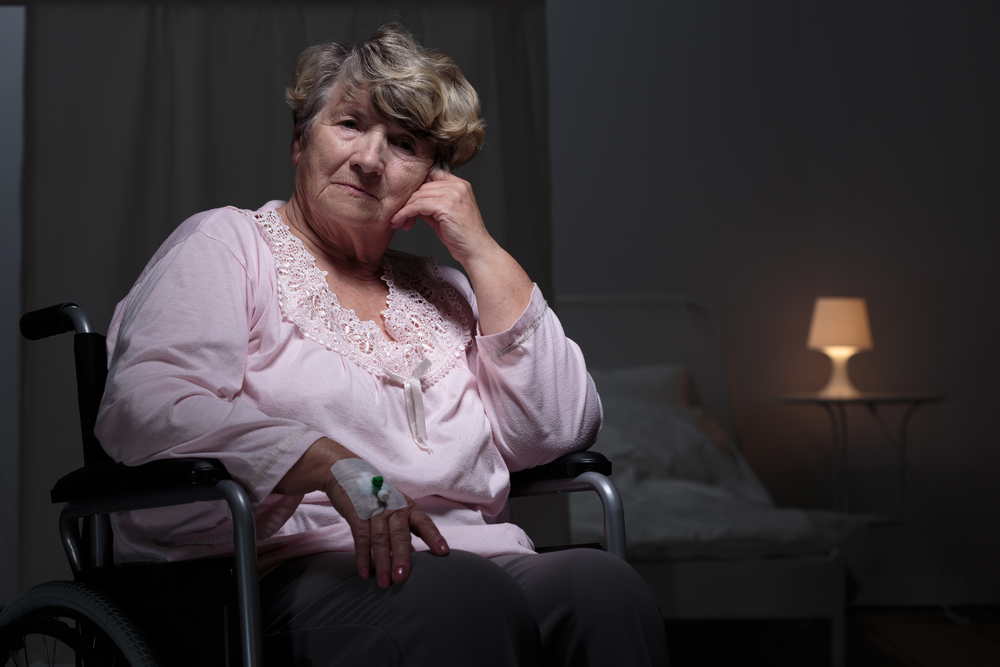MS is a lonely road. No kidding!

Being lonely can be very difficult to define as it is not only the popularly assumed situation of being alone. You can be lonely in a room full of people if you don’t know anyone well enough to speak to them; conversely, you can be happy when alone, in your own company.
So, it was with these thoughts firmly in my mind that I looked at the loneliness study presented at the 2016 Annual Meeting of the Consortium of Multiple Sclerosis Centers (CMSC) last week.
Unsurprisingly, researchers at the University of Kansas Medical Center established that the burden of loneliness is much higher in people with multiple sclerosis than healthy people.
Additionally, loneliness was also found to be associated with both physical and psychological quality of life. Not so amazingly, variations in loneliness scores were affected by marital status and social disability frequency, accounting for a quarter of all the variations encountered.
Their findings were presented in their study Loneliness in Multiple Sclerosis: Putative Antecedents and Manifestations in which 63 MS patients and 21 healthy controls completed self-report measures. This seems, to me, to be an extremely small, if not tiny, sample on which to base a study; but who am I to argue that point?
MS more lonely
The researchers, following Peplau and Perlman’s (1979) theory of loneliness, investigated the prevalence of loneliness in MS patients. The team also examined patients’ personal characteristics, disability, and functional limitations as reasons for loneliness.
 In conclusion, the results suggested that MS patients experience higher burdens of loneliness compared to healthy individuals. They also show that the possible causes or origins of loneliness may include marital and employment status, age, and functional and disability frequency and limitations. The team also concluded that manifestations of loneliness in MS include anxiety, depression, fatigue, and reduced quality of life.
In conclusion, the results suggested that MS patients experience higher burdens of loneliness compared to healthy individuals. They also show that the possible causes or origins of loneliness may include marital and employment status, age, and functional and disability frequency and limitations. The team also concluded that manifestations of loneliness in MS include anxiety, depression, fatigue, and reduced quality of life.
Now, I have no desire to decry the work of these researchers but I have to wonder why they went to the trouble of discovering absolutely nothing. I could have come up with the same results just from my own experience of meeting and talking with others who have MS.
And, in response to Multiple Sclerosis News Today’s story about this research, Kimberly Roberts commented: “I wonder how much money was spent on this study? Most people with MS already know all about loneliness. Maybe somebody could have asked. Could have saved someone a lot of money, that could be used looking for a CURE!!!”
Exactly right, Kimberly. Anyway, now they have done it, I look forward to the results being used positively for the benefit of MS patients, families, carers and medical staff. Mind you, I cannot imagine where or how that may be achieved.
Note: Multiple Sclerosis News Today is strictly a news and information website about the disease. It does not provide medical advice, diagnosis, or treatment. This content is not intended to be a substitute for professional medical advice, diagnosis, or treatment. Always seek the advice of your physician or other qualified health provider with any questions you may have regarding a medical condition. Never disregard professional medical advice or delay in seeking it because of something you have read on this website. The opinions expressed in this blog article are not those of Multiple Sclerosis News Today and are intended to spark discussion about issues pertaining to Multiple Sclerosis.







Bea
I'm glad someone has pointed out exactly what I've been thinking! A lot of these studies sound like complete wastes of time. MS sufferers are more lonely, older MS patients have worse disability are just two examples. Did studies really need to be done for this? Focus on a CURE! Sounds like mice have been cured in several different ways already. Now how about us humans?
Julianne
I agree that loneliness occurs frequently and likely related to the number of years one has had MS and/or the level of disability issues. As function declines, work and social interactions become more limited and less connection to friends, family and life purpose. Day to day survival becomes top priority with strategies to manage this disease each hour of the day. I've had this disease for 34 years and as a retired physical therapist who is doing all I can to stay active and strong, I find that connection to others is most important to my overall health and happiness. How about a follow up study looking at programs that reach out to long term MS "survivors", or a study focused on connection to pets, or creating life purpose later in life while living with disability. Thanks for hearing me!
Hi Julianne, thanks for commenting. Are you a member of a support group? They are great social places where you get to meet others in a similar situation.
Julianne
Hi Ian,
Yes, I have connected with others through support groups and I have one-on-one support with a good friend and my brother who also have MS. I find the individual conversations more helpful than the support group at this time in my life. I am a retired physical therapist and Chinese Medicine practitioner so I have treated many others with MS. I observed the isolation that can happen to some folks as cognitive changes and/or depression add more layers of challenge living with MS over time. Your article highlights the importance of taking the next step - how to address this very real emotion and improve the quality of life for many. Thanks for writing!
Carla L Broadbent Rogers
Be well.
Terry Palardy
I spent my working life surrounded by scores of children and dozens of colleagues, and there was never a dull moment. Retired now, due to loss of cognitive functions, I spend my days in my small quilt and fabric shop, where I meet quilters who are as intelligent and conversant as my colleagues at school were. I am blessed today with new good friends (and yes, I miss those colleagues but life must go on as is) who brighten my days and feed my soul with wit and creativity. If you need the world to come to you, make your place in it inviting ... share your stories, your fears, and your wishes. Never stop dreaming. I read, in Michael Freedman's book THE EARTH IS FLAT, that when your memories outnumber your dreams, you are at the end. Set reasonable, achievable goals, and invite others to help you reach them. Disclaimer: I have what is called 'benign' ms because i am still mobile and my symptoms are 'only' cognitive. bah!